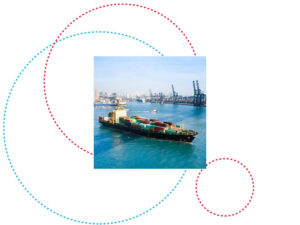How can we encode the specialisation patterns of countries? A new article published in the scientific journal PLOS ONE by researchers from the Universities of Luxembourg and Buenos Aires answers this question using methodologies from Natural Language Processing.
Evolution of trade specialisation
Diego Kozlowski, doctoral candidate in computational social science at the University of Luxembourg together with Viktoriya Semeshenko and Andrea Molinari, researchers at the Interdisciplinary institute of Political Economy of Buenos Aires (IIEP-BAIRES) from the University of Buenos Aires used a well known technique in text mining « Latent Dirichlet allocation (LDA) » to search for latent dimensions in international trade, and their distribution across countries over time. Results show both the main specialisation patterns of international trade, and how countries evolve over time in their export baskets.
The open access article is complemented with an interactive online data dashboard hosted at the University of Luxembourg. This proposal of a data-driven approach complements traditional analysis in international trade, and it could be used to assess the strategic complementarity of Luxembourg’s trading partners.

Figure 1: LDA outputs for China, South Korea and Taiwan. Distribution of the top three components by country. 4: Footwear, clothing and toys ; 5: Non-digital electronics ; 6: Vehicles, boats, machinery and parts ; 23: Processors, microcircuits, toys and shoes ; 27: Electronic microcircuits and machinery parts. 28: Rice, cotton, textiles
About DTU DRIVEN
Diego Kozlowski is a PhD student at the Doctoral Training Unit DRIVEN and works on implementing computational methods to answer questions in social science, a developing field known as Computational Social Science.
The Doctoral Training Unit (DTU) on Data-driven Computational Modelling and Applications (DRIVEN) trains cohorts of Doctoral Candidates who develop data-driven modelling approaches common to a number of applications strategic to the Luxembourgish Research Area and Luxembourg’s Smart Specialisation Strategies.
The DTU creates a bridge between strong methodological core competencies and application domains by training each Doctoral Candidate both in state-of-the-art data-driven approaches, and in the particular application domain in which these approaches are expected to lead to new discoveries: Computational Physics and Engineering, Computational Biology and Life Sciences, Computational Behavioural and Social Sciences.
Article: « Latent Dirichlet allocation model for world trade analysis« , PLOS ONE, February 2021
More information: https://driven.uni.lu
